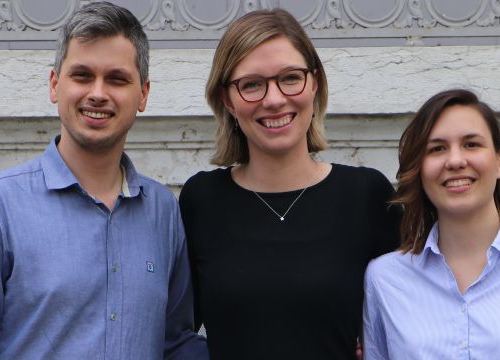The Geneva Academy Team Qualified for the Oral Rounds of the Mandela Moot Court


Geneva Academy
31 May 2019
The Geneva Academy team – Anna Lochhead-Sperling and Paula Padrino Vilela who are currently enrolled in our LLM in International Humanitarian Law and Human Rights – successfully qualified for the oral rounds in the Nelson Mandela moot court.
These will take place at the Palais des Nations in Geneva from 15 to 19 July 2019. It is the first time that the Geneva Academy participates in this competition.
In order to qualify for the oral rounds, Anna Lochhead-Sperling and Paula Padrino Vilela had to write a long and detailed memorial, arguing a case study before a fictitious human rights court both in favour of the applicants and the government. They competed against other universities from the UN regional group Western Europe & Others which notably included Oxford, Yale and Harvard.
‘Participation in the Nelson Mandela moot court allows our students to develop litigation skills and procedural awareness which are absolutely necessary for practising human rights lawyers today’ underlines Pavle Kilibarda, Teaching Assistant at the Geneva Academy and Coach of the team.

An Integral Part of the LLM Curriculum
The Nelson Mandela World Human Rights Moot Court Competition is organized by the Centre for Human Rights at the University of Pretoria, in partnership with the Office of the United Nations High Commissioner for Human Rights (OHCHR).
The pre-final and final rounds take place every July at the Palais des Nations in Geneva. The best 10 teams from each UN region argue two-sides of a hypothetical case on issues of international human rights law before a ‘bench’ of human rights experts and judges from international courts and tribunals.
Two LLM students can participate following a competitive selection process carried out by a Geneva Academy jury. For selected students, participation replaces two optional courses and can be validated for 6 ECTS.










